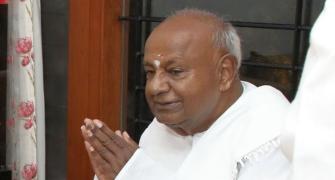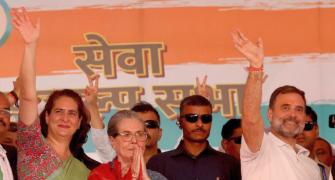In what could deal a death blow to contract manufacturing in the pharmaceutical sector, the government said that effective Saturday, excise duty on all drugs and medicine will be payable at their retail price.
Till now, pharmaceutical companies have saved on excise by getting their products manufactured on contract so that the duty is paid on the sale price to the company and not the sale price to the wholesaler, which is invariably much higher.
The money saved is used by the companies to offer better trade margins to their wholesalers and retailers.
Outsourcing and India: Complete Coverage
Today's notification says that whether a company outsources a drug or produces it in-house, it will have to pay the same excise duty of 16 per cent on the basis of the maximum retail price.
"Retail price-based assessment of excise duty avoids disputes on valuation and ensures certainty in assessment," it stated.
In the process, contract manufacturing of drug and medicine is expected to lose much of its appeal. There are over 20,000 pharmaceutical companies registered in the country.
A large number of these companies depend entirely on such manufacturing contracts. Interestingly, the new rule does not apply to products, which are exclusively ayurvedic, unani, siddha, homeopathic or bio-chemic.
Pharmaceutical companies could see an erosion in their bottomline, while prices of some pharmaceutical products might firm up with the switchover to the new regime.
"In some cases, companies will have to pass on the additional burden to the consumers depending on the competition. The price hike will vary depending on the product," Amar Lulla, Cipla joint managing director, said.
In today's notification, the government has also decreed that pharmaceutical companies will get an abatement of 35 per cent on the declared retail price when the excise duty is charged.
On its part, the pharmaceutical industry has been demanding a higher abatement. "The intentions are right, but the numbers aren't. The industry would have been happier with a higher abatement," Sanjiv Kaul, management advisor to ChrysCapital, said.
In its meeting with the committee examining the issue, the Indian Drug Manufacturers' Association had made the case for an abatement of 60 per cent.
"This will adversely impact the industry and push up the prices of drugs. The government should have held on till the budget or the value-added tax came into effect," Dara Patel, IDMA secretary general, said.







